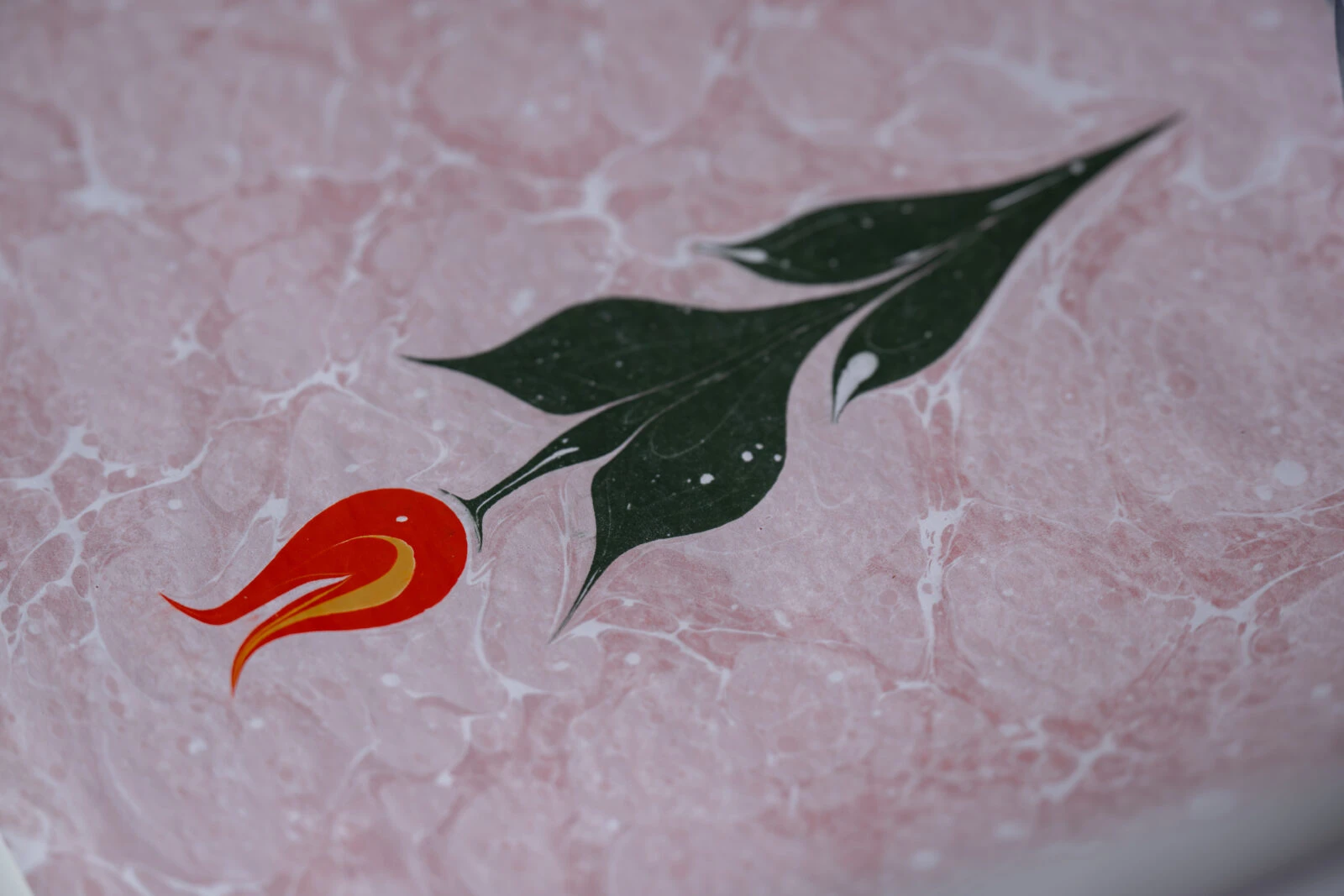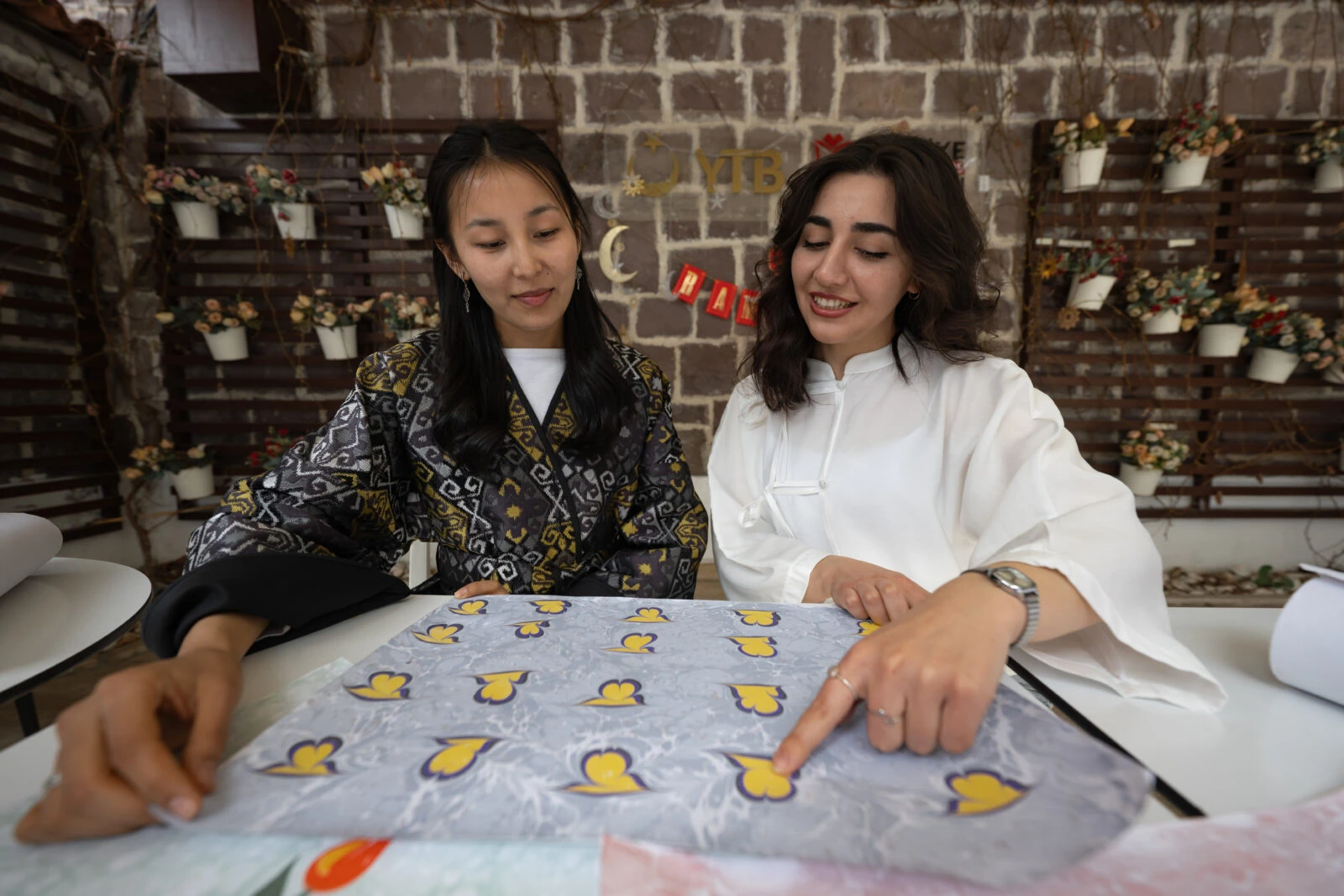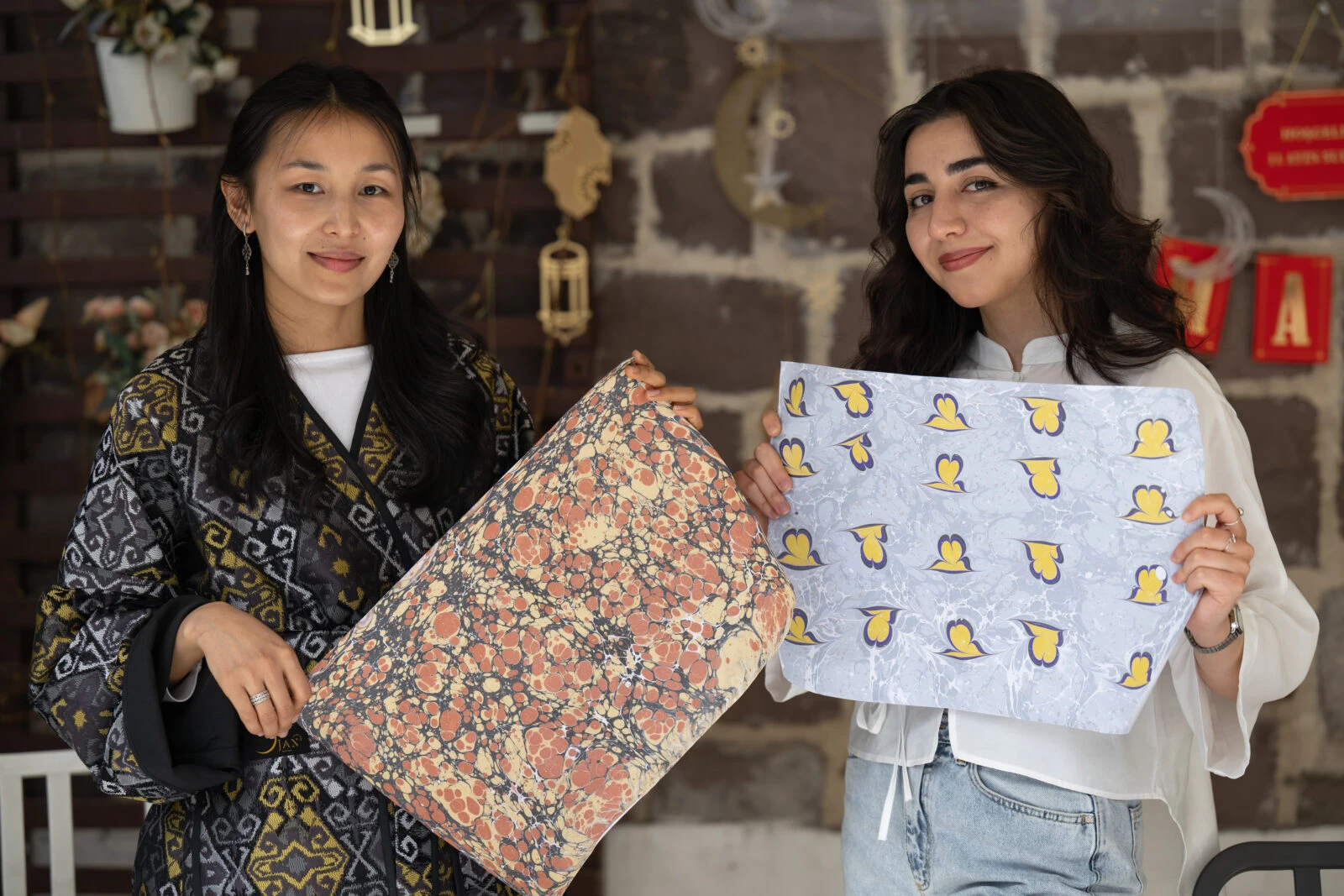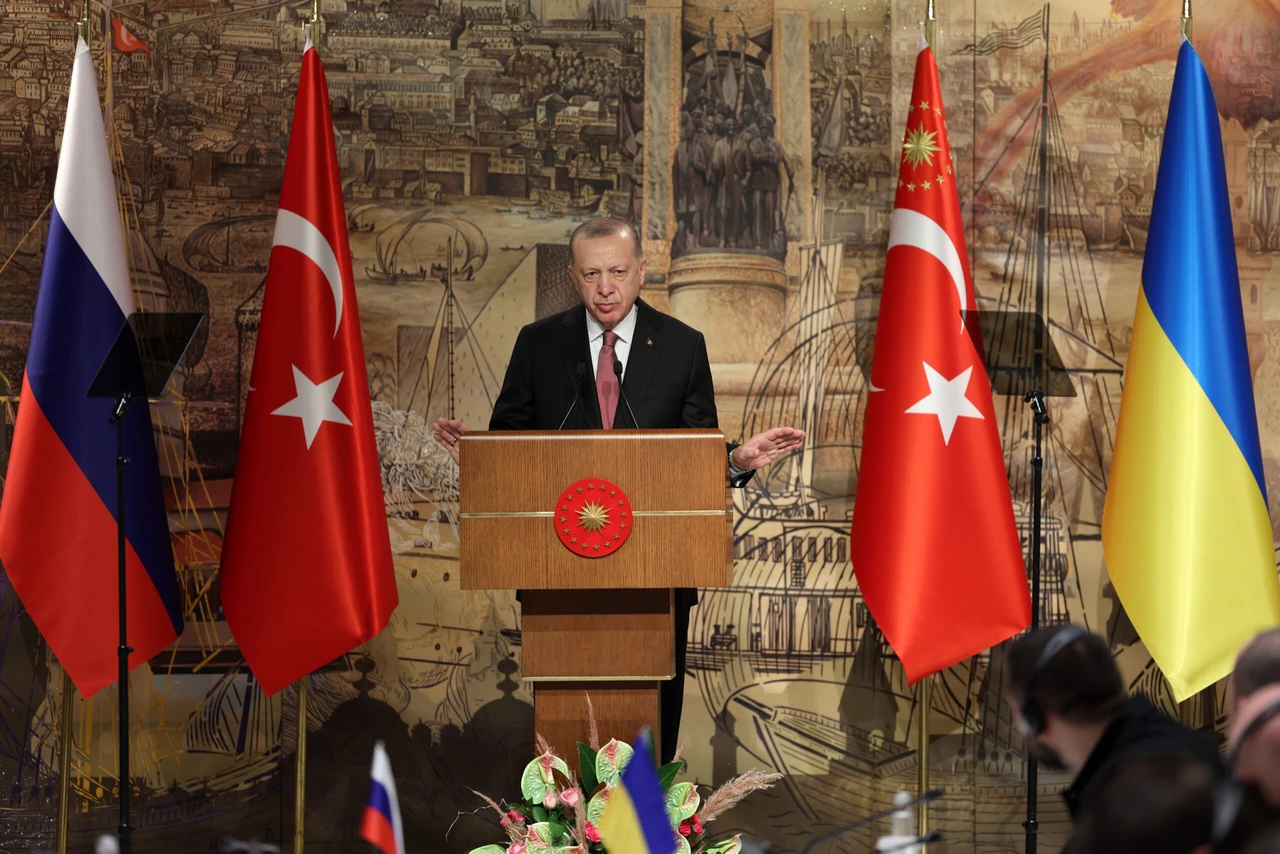International students discover ebru art in Türkiye, call it ‘unique’
 Kazakh Sandugas Kels (L) and Azerbaijani Sabina Rasulova (R), who are studying through the Türkiye Scholarships program of the Presidency for Turks Abroad and Related Communities (YTB), described the ebru art they encountered in Türkiye as "unique" and "distinctive." (AA Photo)
Kazakh Sandugas Kels (L) and Azerbaijani Sabina Rasulova (R), who are studying through the Türkiye Scholarships program of the Presidency for Turks Abroad and Related Communities (YTB), described the ebru art they encountered in Türkiye as "unique" and "distinctive." (AA Photo)
Through the Türkiye Scholarships program of the Presidency for Turks Abroad and Related Communities (YTB), Kazakh student Sandugas Kels and Azerbaijani student Sabina Rasulova encountered ebru art for the first time in Türkiye. They describe it as “one of a kind” and “truly unique.”
Coming from different parts of the world to study in Türkiye, Kels and Rasulova spoke to the Anadolu Agency (AA) at YTB’s Ankara office, sharing their experiences with ebru art and their impressions of Ramadan in Türkiye compared to their home countries.

Ebru: Ancient art of Turkish paper marbling
Ebru, a centuries-old traditional art form, flourished during the Ottoman era. It is known for its intricate patterns created by floating dyes on water and transferring them onto paper. Historically, it has been used for book decorations, calligraphy and bookbinding.
Often referred to as “Turkish paper marbling,” ebru requires specific materials, including a water-filled tray, a natural gum known as kitre derived from geven plant resin, earth pigments, cattle bile to help spread the colors, horsehair brushes, and fine sticks called biz for shaping the designs.
Beyond being a decorative craft, ebru is deeply intertwined with Sufi philosophy, symbolizing patience, balance, and submission. The tulip and rose motifs frequently used in ebru represent divine concepts, with some interpretations suggesting that the water in the marbling tray signifies worldly existence while the dispersed dyes reflect human emotions and spirituality.

‘Ebru is a truly unique and special art form’
Sandugas Kels, a Ph.D. student in the Department of Contemporary Turkish Dialects and Literature at Ankara Haci Bayram Veli University, was introduced to ebru at a YTB workshop. Now in her second year of learning the craft, she expressed deep admiration for it.
“I find it fascinating because it is such a beautiful, unique, and special art form,” she said.
What impressed Kels the most was the harmony of liquid materials interacting without blending into chaos. She also appreciated the all-natural elements used in the process.
Highlighting how ebru is an art form specific to Turks, she noted how even her emotions, clothing, or the lotion she applies to her hands can influence the final outcome.
While her homeland lacks an equivalent to ebru, Kels pointed out that Kazakhstan has its own rich artistic traditions, including ironwork, wood carving, and carpet weaving.
“I have been speaking Turkish for 10 years, and I came to Türkiye with great enthusiasm. Learning an art unique to Turks here leaves a beautiful memory for me,” she added.
‘Turkish hospitality makes us feel at home’
Despite being away from her family during Ramadan, Kels said she never felt alone, thanks to Turkish hospitality.
She was particularly fascinated by Türkiye’s Ramadan pidesi and traditional sherbets, which she noted do not exist in her country.
Kels also shared insights into Kazakhstan’s “Jaramazan” tradition, where children go door to door singing a song from memory while families eagerly await them with excitement.
She highlighted another Kazakh custom known as “yis shigaru” (scent releasing), practiced on the eve of Eid, in which people recite the Quran in honor of their deceased loved ones.
Observing Ramadan in Türkiye, Kels was moved by the joy and sense of unity surrounding the holiday. “Just like in my homeland, Ramadan Bayram here is celebrated with great happiness and enthusiasm. I hope we witness many more years of a strong and united Turkic world.”

‘Ebru’s uniqueness is what makes it special’
Sabina Rasulova, a master’s student in the Special Education Department at Ankara University, recalled how she first encountered ebru in a Turkish TV series she watched as a child.
Though she initially struggled with the techniques, Rasulova eventually grew to appreciate ebru’s rich history and cultural significance.
“What makes ebru so special is its uniqueness,” she stated.
She found it fascinating that ebru has been practiced for centuries and is an integral part of Turkish heritage.
“As a Turk, learning this art makes me very happy,” she added.
‘Ramadan in Türkiye exceeded my expectations’
Having seen Ramadan celebrations depicted in Turkish TV series, Rasulova was eager to experience them firsthand—and the reality did not disappoint.
“Whether it’s waking up to the sound of the drum for sahur, sharing iftar meals, performing tarawih prayers, or the joyous atmosphere of Eid—everything felt even more vibrant than I expected,” she said.
She also found the tradition of children kissing elders’ hands and receiving sweets or money during Eid especially charming.
“May everyone’s prayers and fasts be accepted. I hope Ramadan Bayram brings blessings and prosperity to the entire Turkic world,” she concluded.



